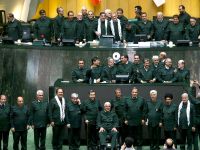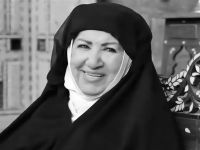By Mahmoud Al Abed
Committees are born to bury decisions, they say, at least at the beaurocratic level. Some argue that the same applies to politics.
But the Jerusalem Committee at the Organization of Islamic Conference finds itself Monday compelled to exercise its responsibility at a dangerous juncture in the peace talks between the Palestinians and Israel.
The Arabs were looking to their governments to hold a summit to spell out a unified Arab position on Jerusalem, the main business of the Committee. But they were given a meeting at the ministerial level.
The Jerusalem Committee of OIC, which meets in Agadir, Morocco, was created in 1975, with the aim of “liberating east Jerusalem from Israel and to preserve its Islamic and Arab identity and heritage.”
At every meeting it has held since its formation, the committee reiterated that east Jerusalem is part of the lands occupied by Israel in 1967.
Israel annexed the eastern part of the city immediately after its occupation, a move never recognized by the international committee.
The committee has always voiced its support for the right of the Palestinians to east Jerusalem, home to the third holiest shrine in Islam, the Al-Aqsa Mosque and Dome of the Rock.
It also believes that the east part of the holy city should become the capital of an independent Palestinian state.
Jerusalem "is part of the Palestinian territories occupied in 1967 and that all relevant Security Council resolutions support that, which means the restoration of Palestinian sovereignty over Jerusalem as the capital of Palestine,” said a statement by the committee at the conclusion of its meeting in 1998, under the chairmanship of the late King Hassan II of Morocco.
His successor King Mohammad VI is now chairing the committee, which is the best Palestinians can get from the Arab states after the Palestinian appeal for an Arab or Islamic summit on the Jerusalem issue was met with deaf ears.
However, chances are that the committee’s meeting will end with reiteration of previous decisions voicing solidarity with the Palestinian “struggle” to free the city and the occupied lands.
Also at best, all participants would this time agree on one stand, putting aside their differences.
In the 1997 meeting, tensions prevailed when Syrian Foreign Minister Farouk Shara almost entered into a confrontation with Jordanian Foreign Minister Jawad Anani, before the verbal clash was contained by King Hassan II.
The controversy erupted when Shara hinted at "a hidden conspiracy" by some countries towards the efforts exerted for the meeting to adopt a strong stance against Israel, in reference to the call for a halt to normalization with Israel and to close Israeli communications offices and embassies in some Arab states.
The controversy escalated when Shara said that Syria fully understands the pressure placed on some Arab states not to take a "decision in confronting the Israeli entity."
However, would the Arabs and Muslims be satisfied if what the committee agrees on is a repetition of previous stands that have done nothing so far to help “liberate” the Holy City?
Can they answer the overwhelming question as to whether the Palestinians could accept American and Israeli proposals on a formula of “shared sovereignty” over Jerusalem?
At the end of the day, without a solution to the issue of Jerusalem, no peace pact could be achieved, leaving violent confrontations in Palestine a strong possibility.
Israel would not give away the whole of east Jerusalem to the Palestinians and the Israeli Prime Minister Ehud Barak believes he compromised a lot on the negotiation table of Camp David.
Apparently, foreign ministers of the Arab and Islamic countries meeting in Agadir will not be able to take major decisions on behalf of the “Arab and Islamic nation.”
They cannot give the Palestinians the go-ahead to accept the US-Israeli formula, or even suggest an alternative.
They cannot draw up a solution that can be accepted by all Arabs and Muslims on one side, and the Israelis, who claim Jerusalem as their unified and eternal capital, on the other side.
© 2000 Al Bawaba (www.albawaba.com)









